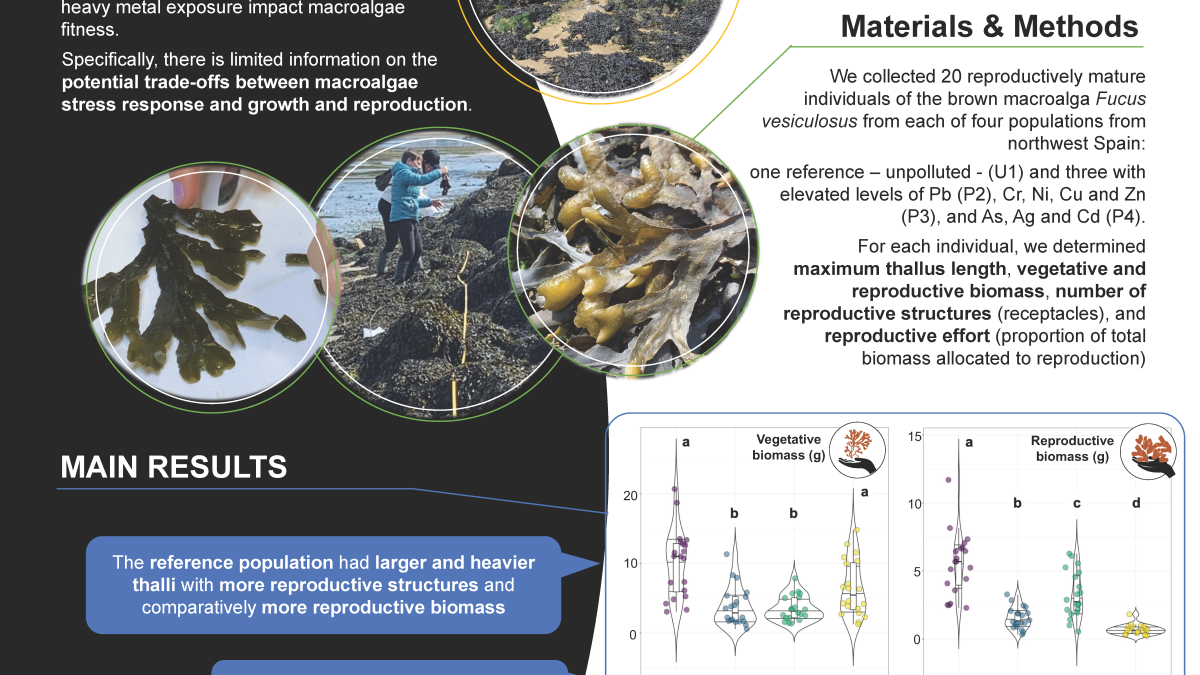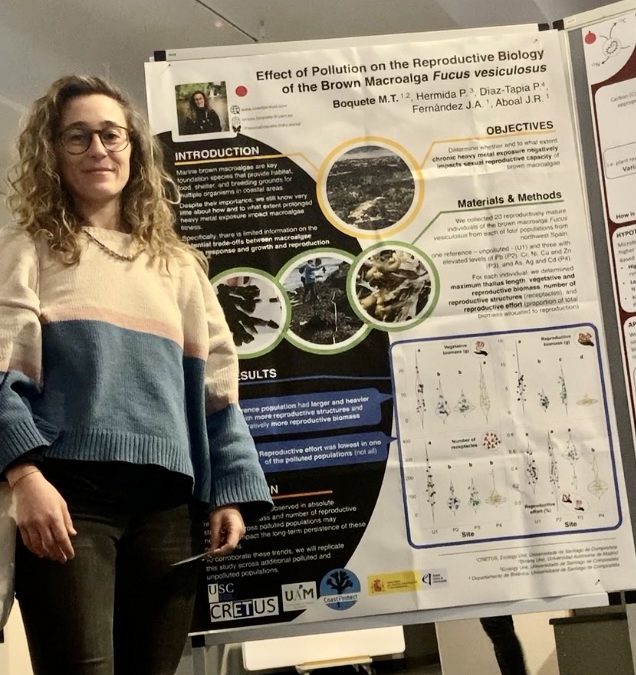Antón Váquez-Arias spent September to December 2023 in Kochi (Japan) at the Marine Core Research Institute (Kochi Univertsity) – Kochi Institute for Core Research JAMSTEC (Japan Agency for Marine – Erth Science and Technology), in the NanoSIMS laboratory of Prof. Motoo Ito and under the supervision of Yosuke Yamada. This allowed us to study the localisation of elements within cells and their changes during charging and discharging processes in marine algae using Espectrometría nanoscale secondary ion mass spectrometry (NanoSIMS). For this purpose, a cross-transplantation experiment of the species Fucus vesiculosus (Ochrophyta) was performed. The transplants were prepared for NanoSIMS analysis by cryofixation and the results are ready, a new publication will follow soon!
23 January 2024
Share

